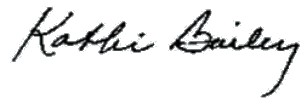
Editor’s note: In case you missed our #GivingTuesday note earlier this week, it is being included in this month’s newsletter just below.
Dear TIRF Supporter,
Today is #GivingTuesday, a day during the holiday season designed to help support the meaningful work of nonprofit organizations. Of course, we want to encourage you to make a donation to TIRF, but we also want to share news about TIRF’s gifts for you.
We have several new reference lists to share and many of the existing reference lists have been updated. The new topics are Assessment Literacy; Dialects and Dialectology; Disabilities Special Education, and Language Learners; Flipped Classrooms; Prosody in Language Teaching and Learning; Texting; and Reported Speech. You can access the free, downloadable Word documents at the following link: http://www.tirfonline.org/resources/references/.
The material for producing these reference lists have been contributed by many of TIRF’s stakeholders. For example, Jeffrey Reaser, Carolyn Adger, Walt Wolfram, and Donna Christian are the authors of the new book, Dialects at School: Educating Linguistically Diverse Students. They shared with us the reference lists for every chapter in the book, which helped us add new reference lists and update earlier parts of the collection.
In addition, we have added to the Resources section of TIRF’s website. In particular, new categories and numerous links have been added to the Teachers’ Resources section, which provides links to practical resources for language education professionals. Much of this work has been done by Mr. Wyatt Boykin, a former English Language Fellow in Morocco. Wyatt got his MA in TESOL from the University of Illinois-Chicago in 2011 and has taught for Intensive English Programs at universities in Chicago, Denver, and New Orleans.
Commenting on his contributions to the resources on TIRF’s website, Wyatt said, “As I was looking for resources for teachers, I tried to work from the mindset of a teacher who doesn’t have a lot of time to plan and needs easily accessible, free, supplemental materials that can be adapted to fit different classroom contexts. I also tried to keep the tech requirements fairly low–that is to say, I tried to include resources that don’t require a lot of tech know-how, equipment, or preparation.”
We are grateful to Wyatt for his work on this project, and to all the TIRF supporters who provided citations for the reference list collection. It is our hope that more and more TIRF stakeholders like you will add to our resources in the future. To do so, simply write to [email protected] with your suggestions.
And of course, we deeply appreciate the TIRF supporters who have generously donated funding to assist the ongoing work of the Foundation. If you would like to join these donors on #GivingTuesday and send a gift to TIRF, please click here.
Best wishes,

Kathi Bailey, President & Chair of the Board, TIRF

Ryan Damerow, Chief Operating Officer, TIRF

